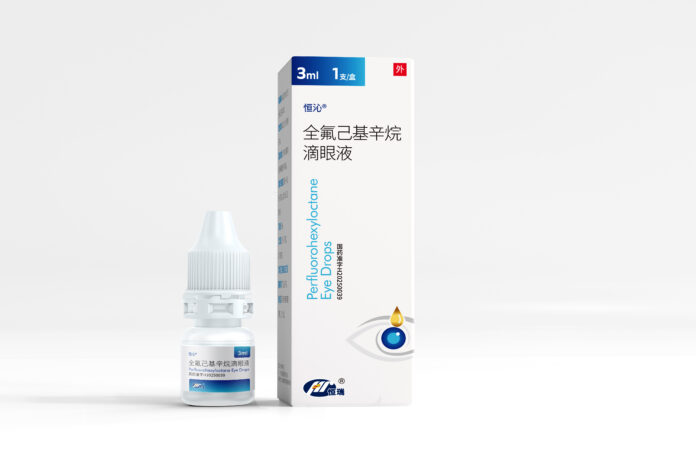CAMBRIDGE, Mass.– Chinese regulators have approved Heng Qin®, a new prescription eye drop developed by Jiangsu Hengrui Pharmaceuticals and Germany-based Novaliq, marking the first approved treatment in China for dry eye disease (DED) specifically associated with Meibomian gland dysfunction (MGD).
The drug, a formulation of perfluorohexyloctane eye drops, targets a major unmet need in ophthalmology. While DED affects between 21% and 30% of the population in China, the majority of cases are linked to MGD—an often under-treated condition that impairs the function of oil-producing glands in the eyelids, leading to increased tear evaporation and chronic eye irritation.
Heng Qin® is the first therapy approved in China that directly addresses this underlying cause of evaporative dry eye. The product is expected to become available in the Chinese market in the coming months.
The approval by the National Medical Products Administration (NMPA) was based on results from a Phase 3 clinical trial involving Chinese patients. The study found that patients using Heng Qin® experienced significant improvements in symptoms and ocular surface health compared to those using a saline solution. The drug showed early efficacy within two weeks and maintained those results through the study’s 57-day endpoint. It was also found to be well tolerated with a low rate of application-site reactions.
The formulation uses Novaliq’s EyeSol® technology, which is free of water, preservatives, and excipients. This design allows the eye drops to spread easily across the eye surface, improve the tear film’s lipid layer, reduce evaporation, and support healing of the corneal epithelium.
Hengrui Pharma secured exclusive rights to develop and market the therapy in China under a 2019 agreement with Novaliq. The same compound—marketed under different brand names—was approved for use in the U.S. and Canada in 2023 and 2024, respectively.
The introduction of Heng Qin® is expected to shift treatment practices in China for millions of dry eye sufferers whose conditions are linked to MGD.


